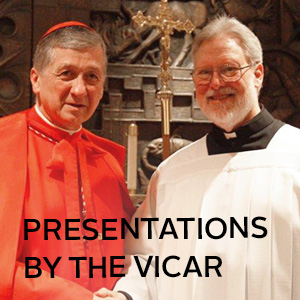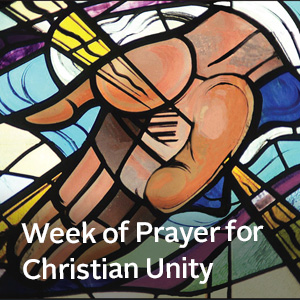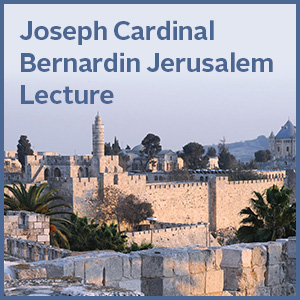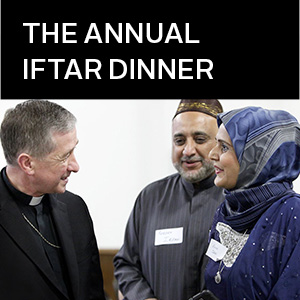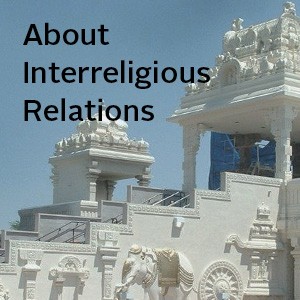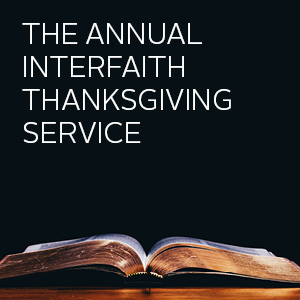Statements and Remarks
National Catholic Muslim Dialogue
Catholic Theological Union
Cardinal Blase J. Cupich
A Catholic Reflection on the Joint Declaration of Pope Francis and the Grand Imam of Al-Azhar, Ahmad Al-Tayyeb: A Document on Human Fraternity for World Peace and Living Together
March 25, 2019
As-Salamu Alaykum
Peace be with you!
In their recent and successful meeting in the United Arab Emirates, Pope Francis and the Grand Imam of Al-Azhar, Ahmad Al-Tayyeb, two leaders whose moral and spiritual authority extends to over 4 billion Christians and Muslims, produced a remarkable pastoral letter, the Document on Human Fraternity for World Peace and Living Together — which is a first-of-its-kind joint declaration between a Pope and one of the most respected, influential and leading voices in the Islamic world, the Grand Imam of Al-Azhar.
The publication of this statement on human fraternity testifies to the profound respect and friendship that exists between the Vatican and Al-Azhar and it is a sign of the good that is possible between Christians and Muslims and can serve as a corrective to the false narrative that our two faith traditions are completely at odds, are fated to be enemies, as as the Grand Imam reminded us in a speech he delivered in 2016 at the Ecumenical Institute in Bossey, that that between Christians and Muslims there can only ever be a clash of civilizations.
On the contrary, we are brothers and sisters of the one, true God and the document on fraternity serves as a bridge inviting us to crossover the murky water of prejudice and fear that separates us so that we may encounter one another in a spirit of openness, trust, and friendship.
Essentially, the seeming intention of the Pope and Grand Imam is straightforward: namely, to shift the narrative by encouraging a change of behavior. For both leaders, however, the document on fraternity appeals not only to the world community of Muslims and Christians but also, and especially, to the moral conscience and behavior of global leaders who are responsible for promoting peace and justice and, therefore, are directly called to cultivate and protect a culture of fraternity.
This is the reason why, together with one voice, the Pope and Grand Imam declare:
“In the Name of innocent human life, the poor, the destitute, the marginalized, orphans, widows, refugees, those who have lost their security, victims of destruction, calamity and war…We, who believe in God and in the final meeting with Him and His judgment, on the basis of our religious and moral responsibility, call upon ourselves and upon the leaders of the world as well as the architects of international policy and world economy, to work strenuously to spread the culture of tolerance and of living together in peace, to intervene at the earliest possible opportunity to stop the shedding of innocent blood and bring an end to wars, conflicts, environmental decay and the moral and cultural decline that the world is presently experiencing.”
Both the Grand Imam and the Pope are calling on all leaders to cultivate fraternity on every level of society. Without the sense that you are my brother, you are my sister, the culture of fraternity will not emerge and attempts to put the dignity and well-being of fellow humans first will continue to be a challenge.
So, how to foster a culture of human fraternity? The Pope and Grand Imam urge in response that we get about the work of “promoting a culture of encounter” and fraternity that “is not a utopia, but (rather) the necessary condition for living in peace and leaving for future generations a better world than the one in which we live.”
The way forward in building a culture of fraternity requires three fundamental steps: 1.) establishing and nurturing dialogue, 2.) striving for cooperation in our daily encounters with one another in the public square, and, 3.) patiently working towards mutual understanding of one another’s beliefs and practices.
For a moment let us consider what this means.
In our Catholic tradition dialogue is at the heart of our relationship with God, who calls us to live in communion with Him. Dialogue is much like a dance, a back and forth communication of love, between God and each person. Yet, it is a dance freely undertaken, involving a choice, for freedom is constitutive of what it means to be human. Our free decision to respond to this loving invitation to communion-in-dialogue with our Creator is always connected to one’s neighbor precisely because humans, as our sacred texts make plain, are made in the image of God. This is why the Catholic Church teaches that love of one’s neighbor is inseparable from the love for God (CCC 1878), which is also hinted at in the Qur’an, which says: “People, we created you all from a single man and a single woman, and made you into races and tribes so that you should get to know one another.” (al-Hujurat, 49:13)
And so, authentic dialogue requires that we strive to remove the barriers of pretense and subterfuge that so often accompany speech for, as I mentioned, to be in dialogue one must always reckon with the absolute dignity of the person before us as one who bears the image of the Creator. Authentic dialogue betokens the truth of the person and is, in a word, sacred.
With this understanding in mind, dialogue involves a commitment to move beyond the prejudices and stereotypes, the selfishness and self-centeredness, that too often mark our speech with one another and serve only to destroy fraternity. Simply put, we must strive to retrieve an understanding of dialogue as a “gifted capacity” to respond to our Creator and in doing so remember that God invites us to loving communion with Himself most especially in and through and with our neighbor.
The second ingredient for building a culture of fraternity involves mutual collaboration, which is the action or work of human fraternity. If dialogue is understood to be a response to God’s invitation for communion, and the locus of the invitation is to be found preeminently with the human person before us, dialogue thus tends towards the building of a culture of togetherness, which is another way of speaking of fraternity. As we take up the work in the National Catholic Muslim Dialogue, I would suggest that fraternal collaboration between Christians and Muslims must always be concerned therefore with the human person whose very dignity is grounded in the fact of being made in the image of God, no matter their station in life. The Pope and Grand Imam understand this keenly when they say:
“…(we) believers are called to express this human fraternity by safeguarding creation and the entire universe and supporting all persons, especially the poorest and those most in need.”
Third, what does this understanding of collaboration entail for Christians and Muslims? Given the obvious disregard for the dignity of persons that is apparent in so many ways throughout our nation and the world, to collaborate with one another entails working to ensure and safeguard this dignity. More concretely, it requires of us to strive for justice wherever and whenever the dignity of the person becomes threatened from the moment of conception to natural death. Present threats to the unborn, the sick and elderly should be our common concern. So too must be the question of bigotry and racism. The treatment of Muslims in American society and Islamophobia are real and impacts the lives of so many of our innocent brothers and sisters. Catholics, especially, should be sensitive to this reality as so many of our own ancestors in the 19th and 20th centuries, right up to the Presidency of John F. Kennedy were, more often than not, held in suspicion and targeted as un-American by the general population.
Working together in this way, with careful discernment and regard for the well-being of others, especially, from the Catholic perspective, the safety and well-being of our Muslim brothers and sisters in this country, can thus be understood not only as the key to a deepening of our National Catholic-Muslim Dialogue but also to a real contribution towards the Pope’s and Grand Imam’s call for the establishment of a culture of fraternity.
Finally let us look at the importance of working towards mutual understanding of one another’s beliefs and practices.
Dialogue, collaboration and coming to a mutual understanding are interrelated. Authentic dialogue entails mutual respect and esteem for the sacredness of the other, not least because of the recognition of the presence of God in one’s interlocutors. So too collaboration, the fruit of dialogue, deepens interpersonal ties and naturally encourages in oneself the desire to understand more about the other, that is, more about their context.
When a Christian has been in dialogue with Muslims over a long period of time, it is natural to develop a kind of “holy curiosity” about the history and culture of your Muslim brothers and sisters. After all, we want to know more about who and what we care about. And it goes without saying that greater understanding leads to an ever-increasing capacity for empathy and a more profound communion with our dialogue partner. And, in my opinion, it is this profound communion which marks the kind of fraternity called for by the Pope and the Grand Imam.
- Concluding Remarks: This important document of Pope Francis and the Grand Imam is one we should all read and re-read, for it lays before us in prophetic fashion the drama that is unfolding before us and the choice we must make for the future of the world. That future will either be one in which the love of God and love of neighbor are given pride of place or one in which we continue to turn-in on ourselves as the measure of reality and forget God and forget our brothers and sisters. One of these choices leads to a culture of fraternity and a flourishing world order; the other can only ever lead to sadness, broken relationships, and, eventually, our mutual destruction. The choice, providentially, is ours.
